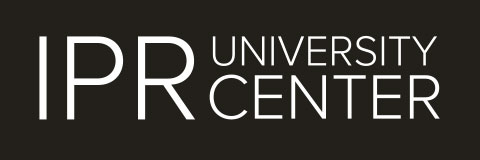Indigenous Knowledge, IPRs and Human Rights
Summary: The seminar aims at delving into core issues related to the governance of indigenous peoples’ rights. A range of senior and junior researchers will present and tackle key research questions related to the intersection between indigenous peoples’ knowledge, intellectual property rights and human rights.
All students, researchers, stuff, as well as interested parties are warmly welcome!
To register, please send an email to rosa.ballardini@ulapland.fi.
Programme
12:00 – 12:15 Welcome: Professor Juha Karhu, Dean of ULap/Faculty of Law
12:15 – 13:00 Keynote speaker: Professor Matthew Rimmer, Queensland University of Technology (Brisbane, Australia).
Dr Matthew Rimmer is a Professor in Intellectual Property and Innovation Law at the Faculty of Law, at the Queensland University of Technology (QUT). He is a leader of the QUT Intellectual Property and Innovation Law research program, and a member of the QUT Digital Media Research Centre (QUT DMRC) the QUT Australian Centre for Health Law Research (QUT ACHLR), and the QUT International Law and Global Governance Research Program. Rimmer has published widely on copyright law and information technology, patent law and biotechnology, access to medicines, plain packaging of tobacco products, intellectual property and climate change, and Indigenous Intellectual Property. Topic: “Indigenous knowledge, intellectual property and sustainable development and climate change”
Abstract Indigenous communities have been hard hit by the impacts of environmental degradation, biodiversity and climate change. Carold Betzold and Anaid Flesken have observed: ’About 300 million people belong to one of the roughly 5,000 Indigenous peoples worldwide. While their ecological footprint is very small, Indigenous peoples tend to be disproportionately affected by environmental problems, for they tend to live in sensitive ecosystems, are closely related to, and directly depend on the natural environment and its resources. Environmental degradation hence compounds the already difficult situation of Indigenous peoples, who typically suffer from problems such as poverty, marginalisation, discrimination, and exclusion from policy‐making processes.’ There has a particular concern about the impact of climate change and global warming upon Indigenous communities and their lands, territories, natural resources and associated traditional knowledge.
Increasingly, Indigenous communities have considered litigation over government inaction in respect of
climate change. In Alaska, Nelson Kanuk – an Indigenous youth – led by an atmospheric trust litigation
against the Government of Alaska over climate inaction. In the United States, water protectors have
sought to stop the Dakota Access Pipeline. In Australia, Indigenous communities have challenged largescale resource projects because of concerns about their impact upon land, water, cultural heritage, and Indigenous Knowledge.
There have been fierce debates over intellectual property, the environment, and climate change in a range of international fora. The question of the protection of Indigenous intellectual property and traditional knowledge has emerged during these international discussions. There has been a significant
fragmentation of the global governance of intellectual property, climate change, and Indigenous
knowledge. The Paris Agreement 2015 provides some limited recognition of Indigenous Knowledge – but not full acknowledgment of Indigenous Intellectual Property.
13:00 – 13:15 Commentator: Rosa Maria Ballardini, University Lecturer in IP Law, ULap/Faculty of Law
13:15 – 13:35 Speaker: Piia Nuorgam, PhD student at ULap/ Faculty of Law
Topic: Wider use of traditional Saami Dress in Finland – Discrimination against the Saami?
13:35 – 13:50 Commentator: Heidi Härkönen, Researcher at ULap/Faculty of Law
Coffee break
14:10 – 14:30 Speaker: Associate Professor Hossain Kamrul, Director of Northern Institute for Environmental and Minority Law, ULap/Artic Center
Topic: “Human security: Sámi as Actors in Security Frameworks”
14:30 – 14:45 Commentator: Dr. Stefan Kirshner, Senior researcher, PYVI
14:45 – 15:05 Speaker: Olga Pushina, PhD student, ULap/Artic Center
Topic: “Protection of Property rights by the European Court of Human Rights: Comparative
research in Finnish and Russian Property Law”
15:05 – 15:20 Commentator: Prof. Soili Nysten‐Haarala, ULap/ Faculty of Law
15:20 – 15:40 Speaker: Anna Petrétei, PhD student, ULap/Artic Center
Topic: “Integration of Human Rights Impact Assessments in the license granting process for
extractive development project in the Sámi region (Sámi region)”
15:40 – 15:55 Commentator: Anette Alén‐Savikko, Post‐doctoral researcher, ULap/Faculty of Law and University of Helsinki/Faculty of Law
To register, please send an email to rosa.ballardini@ulapland.fi
Järjestävä organisaatio
University of Lapland

 -verkkolehti
-verkkolehti